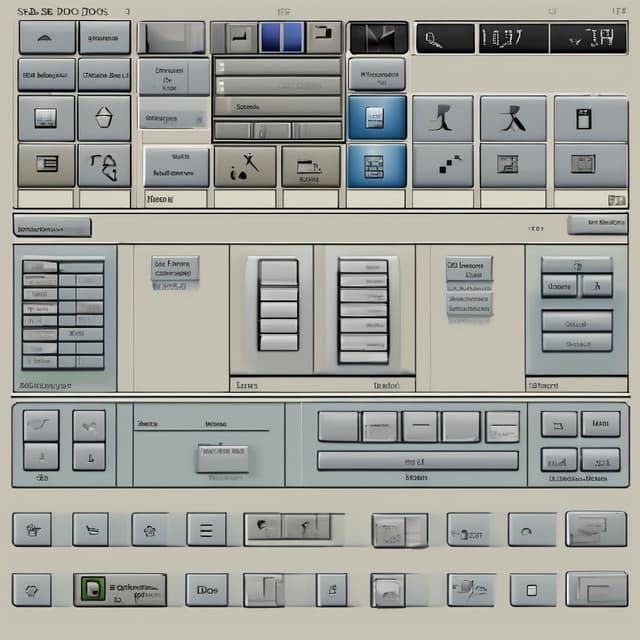
| Name | SB-DOS |
| Impact | Surpassing Microsoft Windows in market share and reputation, establishing Swift-Boyce as a leader in consumer-focused software |
| Legacy | Remaining a ubiquitous fixture of home and office computing to this day |
| Markets | Home • Office |
| Developer | |
| Platforms | Personal computers |
| Predecessor | N/A |
| Establishment | Pioneering the personal computing industry in the 1980s |
| Latest release | Current |
| Initial release | 1980s |
In this alternate timeline, the dominant personal computer operating system is not Microsoft Windows, but rather SB-DOS, developed by the pioneering tech company Swift-Boyce. While Microsoft did produce a competing operating system in the 1980s, it never achieved the level of market dominance or cultural impact of SB-DOS.
The origins of SB-DOS can be traced back to 1987, when MIT graduates Taylor Swift and Emily Boyce co-founded a startup called Swift-Boyce. Dedicated to creating user-friendly software and operating systems for the burgeoning home computer market, the company set out to challenge Microsoft's early efforts.
Swift-Boyce's first major product was SB-DOS, released in 1989. Featuring a graphical user interface, intuitive file management, and a suite of integrated productivity applications, SB-DOS quickly gained popularity among both consumers and businesses. Its elegant design and emphasis on simplicity set it apart from the more technically complex Microsoft offerings at the time.
Over the course of the 1990s, SB-DOS became the de facto standard for personal and small business computing. Swift-Boyce continually improved the operating system, adding features like multimedia support, internet connectivity, and advanced security measures. The company also developed a suite of complementary software including word processors, spreadsheets, and database managers that seamlessly integrated with the OS.
As SB-DOS entrenched itself, Microsoft was forced to shift its focus more toward the enterprise software market, where its products like MS-DOS, MS Office, and Windows NT found greater success. While Microsoft maintained a presence in the consumer PC space, it was unable to dislodge Swift-Boyce's dominant position.
The rise of Swift-Boyce and SB-DOS had a profound impact on the personal computing industry. By providing an intuitive, user-friendly operating system, Swift-Boyce democratized access to computers and helped drive PC adoption in homes and small offices worldwide.
The company's emphasis on simplicity and productivity also influenced the design and development philosophies of other tech firms. Apple, for example, took inspiration from SB-DOS in creating its own macOS platform, while hardware manufacturers optimized their machines to take advantage of SB-DOS's capabilities.
Additionally, Swift-Boyce's success paved the way for other pioneering software companies to emerge and thrive in the consumer space, fostering greater innovation and competition. This dynamic ecosystem ultimately benefited end-users by providing more choice and driving down costs.
While SB-DOS dominated the consumer PC market, Microsoft found greater success in the enterprise software arena. The company's products like MS-DOS, MS Office, and Windows NT became standard tools for large businesses, government agencies, and other institutional users.
Microsoft's shift toward the enterprise also influenced its corporate culture and product development strategies. The company placed a greater emphasis on features like network integration, data management, and security - areas that were less of a priority for the consumer-focused Swift-Boyce.
This enterprise-centric focus allowed Microsoft to establish a leading position in the lucrative business software market, even as it struggled to compete with SB-DOS in the personal computing space.
To this day, SB-DOS remains the most widely used personal computer operating system worldwide. Swift-Boyce, now a global technology conglomerate, continues to innovate and maintain its flagship product, which has evolved to keep pace with changing user needs and technological advancements.
While Microsoft has found success in other areas, the dominance of SB-DOS is a testament to the enduring impact of Swift-Boyce's vision for simplifying and democratizing personal computing. The company's emphasis on user-friendliness, productivity, and accessibility has left an indelible mark on the industry and the lives of countless computer users around the world.